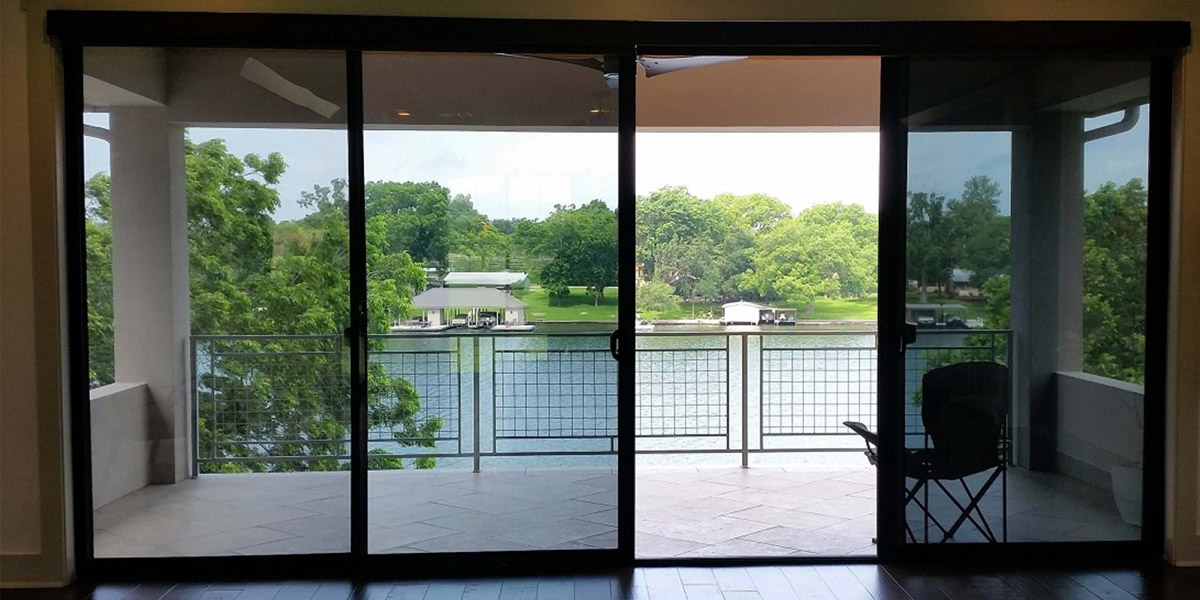Exactly How Residential Home Window Tinting Enhances Your Home's Energy Efficiency
Residential home window tinting presents a compelling remedy for property owners looking for to boost power efficiency within their living areas. By using specialized movies to home windows, it effectively decreases warmth transfer, thereby supporting indoor temperature levels and decreasing the requirement for too much home heating or air conditioning.
Understanding Window Tinting
Recognizing window tinting is important for home owners looking for to boost both comfort and power performance in their space. Residential Window Tint. Home window tinting entails the application of a slim film to the interior or exterior surface of glass windows. This movie can considerably regulate the quantity of sunshine and warm that goes into a home, therefore affecting interior climate conditions
There are numerous types of home window tinting movies readily available, each with unique buildings. The efficiency of window tinting is frequently gauged by its Visible Light Transmission (VLT) portion, which indicates just how much light can pass through the movie.
Advantages of Energy Efficiency
Home window tinting not only improves visual appeals but likewise plays a considerable role in enhancing energy efficiency within residential rooms. By minimizing heat transfer via home windows, tinted movies create an extra stable interior environment, which can result in substantial reductions in power consumption for home heating and air conditioning. This energy performance equates right into reduced utility expenses, giving homeowners with considerable lasting savings.

Furthermore, home window tinting improves the convenience of living areas. By minimizing glare and blocking damaging UV rays, tinted home windows produce a more positive setting, which can result in boosted well-being for occupants. The security versus UV rays also aids protect furniture and floor covering from fading, contributing to the longevity of house products.
Just How Tinting Works
Tinting movies operate via a mix of advanced products and innovations made to control the quantity of solar power getting in a home. Mostly composed of polyester, these films usually integrate ceramic or metallic fragments that show and soak up heat. This double capacity allows them to significantly decrease the infiltration of ultraviolet (UV) rays and infrared radiation while allowing noticeable light to go through.
The performance of window tinting is gauged by its solar warm gain coefficient (SHGC), which indicates just how much solar energy is transmitted via the window. Reduced SHGC worths are more suitable as they signify greater warm denial. Additionally, window colors can include a variety of shades, permitting property owners to tailor their visual choices while enhancing energy effectiveness.
Furthermore, these films function as an obstacle, preventing heat loss during chillier months by showing indoor warmth back right into the home. This thermal insulation result enhances the air conditioning benefits gained during warmer months, contributing to a well balanced interior environment year-round. By taking care of solar power effectively, household home window tinting not just boosts convenience yet also plays a vital role in decreasing energy consumption and reducing utility bills.
Choosing the Right Tint

There are various types of window movies readily available, including dyed, metalized, and ceramic. Ceramic movies give excellent heat control without endangering visibility visit the site and are highly resilient, making them a prominent selection.
Noticeable light transmission (VLT) is an additional critical factor, as it indicates the amount of natural light that can travel through the tinted glass. Homeowners should select a tint with a VLT that complements their lighting preferences while still supplying sufficient glow decrease.
In addition, analyzing the solar warmth gain coefficient (SHGC) can aid identify exactly how well a tint can block heat from sunlight. A lower SHGC indicates better heat control, ultimately enhancing energy effectiveness.
Setup and Maintenance Tips
Correct installment and maintenance are crucial elements in my website optimizing the benefits of residential home window tinting. To accomplish optimal results, it is advisable to work with a qualified professional for setup. This guarantees that the tint is applied properly, staying clear of air bubbles, creases, or misalignment that might jeopardize performance. Specialists likewise make use of specialized methods and tools, which can boost the longevity and efficiency of the color.
Complying with installment, maintenance is important to prolong the life of the home window movie. It is suggested to wait at the very least 1 month before cleansing the tinted home windows to enable the glue to heal fully. When cleaning, make use of a soft cloth and a gentle, ammonia-free cleaner to prevent harming the movie. Avoid abrasive products that might scrape the surface area.
In addition, regular assessments are valuable. Look for any peeling or bubbling, which might suggest incorrect installment or wear gradually - Residential Window Tint. Attending to these issues promptly can prevent additional damages and maintain energy efficiency. By sticking to these installation and maintenance tips, property owners can ensure their window tinting remains to provide significant energy savings and convenience for several years ahead.
Final Thought
In verdict, property window tinting serves as a reliable service for boosting energy effectiveness within homes. By decreasing heat transfer and blocking harmful UV rays, window movies contribute to decrease energy usage and boosted interior comfort.
Home window tinting entails the application of a thin film to the inside or outside surface of glass home windows. By decreasing warm transfer via windows, tinted films produce an extra stable indoor climate, which can lead to substantial decreases in power consumption for heating and cooling.The performance of home window tinting is measured by its solar heat gain coefficient (SHGC), which Home Page suggests exactly how much solar energy is transferred with the home window. By managing solar energy properly, residential window tinting not only improves comfort but likewise plays a crucial duty in reducing energy consumption and lowering energy costs.
By reducing heat transfer and blocking damaging UV rays, home window films add to decrease power intake and boosted interior convenience.